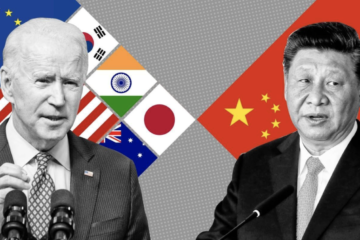On November 2, the Bank of England’s (BOE) Monetary Policy Committee announced its decision to maintain the interest rate of 0.1% before this holiday season. When most British families are busy shopping for gifts and planning to travel, the recent surge in inflation is behaving like the Grinch by causing a cash crunch and elevating the cost of living. Last week, I went to a store named Inspitalfilds and really liked one monkey statuette. When I asked the store assistant if I could return to get it at the end of the week, she said, “We do not have any more stock this season, we do not know when new stock will reach us as supply chains are hampered and the demand is ever-increasing.” I am sure that this is not news to you; stores all over the UK are facing not only supply shortages along with high demand given the time of year, but also a lack of staff.
It is pertinent to understand what has been happening in the UK economy, as it is affecting our day-to-day life. In October, the price of oil reached an all-time high as its international demand increased as markets set on the road to post-Covid recovery, which has swelled energy bills and petrol prices. Moreover, Brexit’s unfortunate gift is creating an absence of workers in jobs such as bus and truck driving, retail, and hospitality, which has burrowed a hole in the consumer’s pocket too.
The BOE’s response to inflation has been cold – it has not taken any concrete steps to target inflation. The bank has heralded a future increase in interest rates, but so far has not tweaked them. Many suspect that this move would be made right before Christmas, in December, and it will have an instrumental effect on employment, investment returns, and people’s purchasing power.
According to the Phillips curve economic model, which states that prices and unemployment move in opposite directions, currently we should be witnessing a boom in employment. But the truth is that in the long-term, this curve is flat – the rise in prices eventually limits the purchasing power of employees and even after a wage increment, their inflation-adjusted real wages still remain insufficient.
What we can expect from the BOE’s upcoming inflation-targeted interest rate increase is that there will be a spike in unemployment in the coming months. In addition, investors will be hit the hardest as the returns on their investments will be slashed and the purchasing power will shoot up. No matter how optimistic this sounds to average consumers, who are ultimately concerned about prices, the demand and supply problem will persist due to the post-Brexit bottlenecks in trade. Thus, the BOE’s move appears too simplistic and might leave the economy worse off.
It may be argued that it is wrong to review the situation from one side only, thus it’s important to also evaluate the government’s fiscal policy. On October 27, UK Chancellor Rishi Sunak delivered the 2021 Autumn Budget, which primarily aimed to address the various challenges to the UK economy created by Covid-19 and Brexit. The government has moved its sail towards higher taxes and direct intervention to support industries like healthcare and the technology sector.
However, overall, the budget remains silent on the issue of inflation and does not directly address the pivotal economic issues such as inflation, decreasing workforce in the long term, or supply shortages hovering over the country. Higher taxes will only compromise living conditions further and prevent those industries that were left without government support from growing and meeting the needs of the people. So, even the government’s fiscal policy appears largely incapable of resolving the purchasing power complication. The solution seems very hard to reach since the factors and goals are different and it is up to the government to decide which of them to address first. Either the government can focus on policing inflation and reducing the price pressure, or socio-economic recovery.
Financial institutions and government officials are failing in this fight against the rising cost of living and have veiled their eyes from this immediate problem. In prioritising the economic challenges created by Covid-19 and Brexit, it seems that economic rationale has been clouded in the short run. There is a need for early action before the inflation touches 4.5% as predicted by George Buckley, economist at Nomura, a global investment bank.
What we can draw from the UK’s current economic predicament is that we must prepare ourselves for further price hikes and a rising cost of living. This winter is going to be very harsh as the Grinch will continue to work even in the holiday season. Can we expect Santa to shower us with better fiscal and monetary policies? That appears to be a chimeric dream this Christmas.


